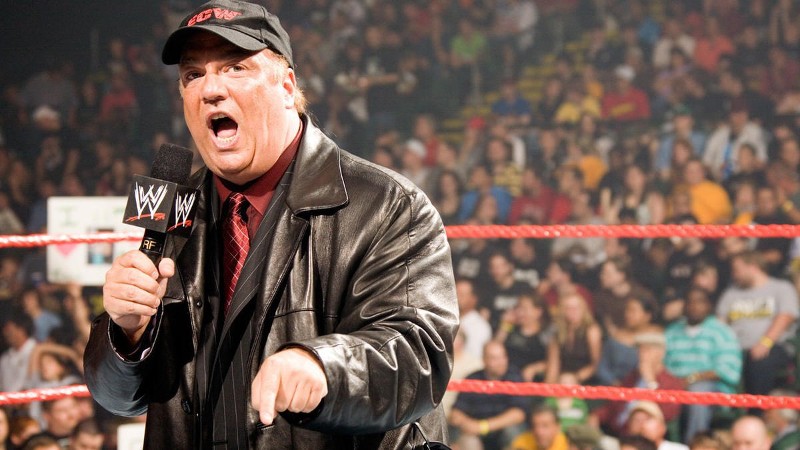The Monday Night Wars are often remembered for the battle between WWE (WWF at the time) and WCW, but Paul Heyman‘s ECW was a crucial third member of the mix.
Heyman’s comments look back on this unforgettable time will air on the newest episode of A&E’s WWE Rivals, and the former ECW boss also spoke with Justin Barrasso of Sports Illustrated about this fight for survival. Looking back on it over 20 years later, he stated that it was a thrilling ride.
“What was it like competing in the single most hyper-competitive environment in the history of this industry?” Heyman said. “With absolutely no sponsors, no advertisers, no big money-backers or trust-funds behind me? It was exhilarating.”
On paper, ECW will go down as one of the “losers” of the Monday Night Wars, as the company went out of business. But for a while, it was the third leading player in the wrestling industry at a time when it had never been hotter. Heyman knew that he didn’t have the money to equal WWF or WCW, but he could still be a “disruptor” by changing the game and doing it with a lot of “balls, bulls— and bravado.”
“My role was not to be a dollar-for-dollar competitor,” Heyman said. “My role was to be the disruptor, to be the catalyst for change in the business. I understood it. I also understood that history was going to view ECW as a cause and not a business, and ultimately, we would fall victim to that designation and stigma because it would become a self-fulfilling prophecy. There was no way we were ever going to survive fighting two billion-dollar corporations with no money, no muscle, and no mouthpiece. All we had was balls, bulls— and bravado.
“In my 35 years as an orator, I’ve yet to find a sound bite better than Bubba Ray Dudley, who said we were Napster. We weren’t meant to survive. We were meant to disrupt. We were a cause, one that is still seeing its ideas implemented and exploited and benefitting an industry. That is who we were, the disrupters, with a Faustian zeal, of an entire generation.”
As Heyman noted, ECW’s legacy remains apparent in the wrestling world to this day as companies throughout the business still lean on its influence in a variety of ways.





